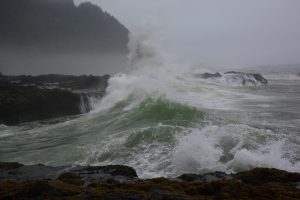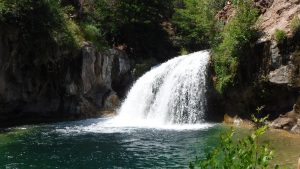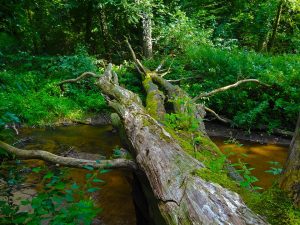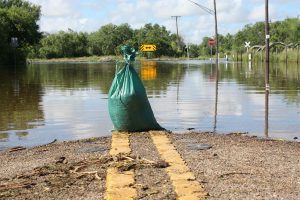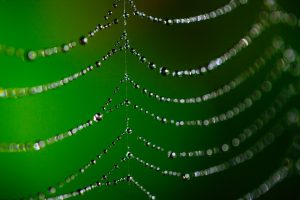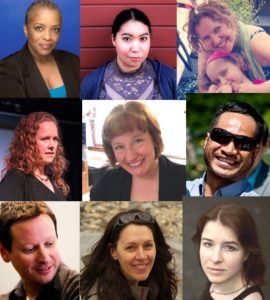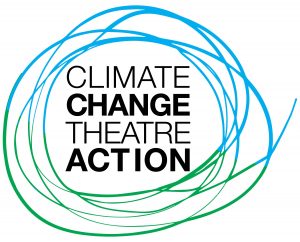Janet Newman is the 2017 winner of The Kathleen Grattan Prize for a Sequence of Poems, given by the International Writers Workshop, for her sequence Tender. The $1000 prize was judged by Auckland poet Robert Sullivan. Tender is a seven poem sequence about Janet’s father, Doug Newman (1919-2008). Janet, a runner-up in the prize in 2014, has a Masters of Creative Writing through the School of English & Media Studies at Massey University and is presently a PhD student at Massey, where she is exploring New Zealand’s long history of environmentally-oriented poetry and writing a collection of original ecopoems.
Category Archives: Creative Writing
Going places – women writers and wanderers
Author, editor, lecturer and traveller Dr Ingrid Horrocks has long been fascinated by women who travel and write, in past and modern times. Her new book, Women Wanderers and the Writing of Mobility, 1784-1814 (Cambridge University Press), was recently featured in the prestigious Times Literary Supplement.
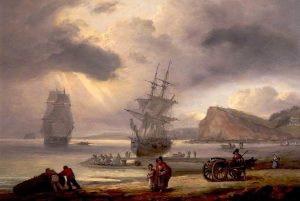 The book explores the perils and challenges faced by four British women writers of the Romantic period who ventured from home to embrace the world at large. Frowned on socially for stepping out, these unconventional women encountered and were influenced by the turbulence of the times, from the effects of the French Revolution to the uncertainties of juggling writing, motherhood, love, debt and the desire for independence.
The book explores the perils and challenges faced by four British women writers of the Romantic period who ventured from home to embrace the world at large. Frowned on socially for stepping out, these unconventional women encountered and were influenced by the turbulence of the times, from the effects of the French Revolution to the uncertainties of juggling writing, motherhood, love, debt and the desire for independence.
Dr Horrocks, based in the School of English and Media Studies on the Wellington campus, shares insights on writing the book, on the deeper implications of travel for women – then and now – and evolutions in ‘mobility studies’.
How did the idea for this book come about?
When I was doing my PhD at Princeton University, I was studying women writers from the late 18th century and Romantic period and was amazed by the richness and strangeness of their books. I was also acutely homesick and what I saw everywhere – in novels, poetry, and travel books – was uprooted-ness, and homelessness. There seemed to be vagrants, refugees, orphans, unmarried mothers without secure lodgings, feminists abandoned by their lovers in everything I read. The working title for the first version of the project was ‘Reluctant Wanderers’.
What particularly interested me was how radically different this was from how I’d been taught to think about movement and travel – both in my own life and in literature. Travel was meant to be about going out into the world, discovering oneself, and returning home victorious, somehow both wiser and better.
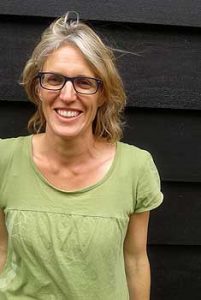 But mobility looked completely different in these texts. I became interested in unpicking influential ideologies that have taught us to see mobility as ‘freedom’ and, as a result, have obscured all the ways in which mobility can be painful, difficult, and continuous for some. My book looks at the ways writers sought to evoke what this feeling of economic and emotional insecurity feels like, in particular for women on the move. I see this as speaking directly into our current historical moment too.
But mobility looked completely different in these texts. I became interested in unpicking influential ideologies that have taught us to see mobility as ‘freedom’ and, as a result, have obscured all the ways in which mobility can be painful, difficult, and continuous for some. My book looks at the ways writers sought to evoke what this feeling of economic and emotional insecurity feels like, in particular for women on the move. I see this as speaking directly into our current historical moment too.
Who are the four women writers you focus on, and why did you choose them?
The four key British women writers I focus on are Charlotte Smith, Ann Radcliffe, Mary Wollstonecraft, and Frances Burney. I was interested in how ‘wandering’ disrupted different genres, so each chapter in the book is about a woman author working in a particular literary form. These writers are now at the centre of the new Romantic canon.
Charlotte Smith was a novelist and poet who started writing in debtors’ prison when she was 25 and had nine living children. The obvious fix for her financial woes, of course, was to begin writing poetry! Astonishingly, she managed to support her family by writing for the rest of her life. Her friend, the poet William Cowper, described her as “chained to her desk like a slave to his oar”.
As she was shunted from one temporary lodging to the next, Smith wrote about wanderers of all sorts, using her own experience to write about displacements. One of her poems I write about is an amazing long blank verse poem, The Emigrants, which explores what our material and ethical responsibilities are toward refugees. The refugees Smith [whose poetry was launched in a new edition co-edited by Dr Horrocks and published by Broadview Press last month] was writing about were those displaced by the French Revolution, who arrived by the thousands on Britain’s south coast in the bitter winter of 1792-1793, often in open boats and with nothing but the clothes they wore.
Ann Radcliffe is the mother of the Gothic novel – I was interested in what happened if we considered gothic heroines as the most coerced of wanderers.
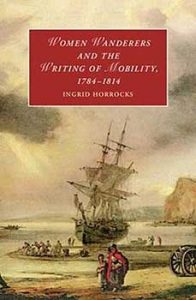 Pioneering feminist Mary Wollstonecraft is probably the most well-known author I write about. She felt endlessly homeless as an intellectual woman in her society. She’s best known for her ground-breaking work The Rights of Woman, but her most moving work is a beautiful travel book she wrote about a journey she took through Scandinavia with her baby in 1796. She’d been disappointed in the French Revolution, which she’d hoped would change women’s situation, and she’d been abandoned by her American lover. It’s an intensely melancholy work.
Pioneering feminist Mary Wollstonecraft is probably the most well-known author I write about. She felt endlessly homeless as an intellectual woman in her society. She’s best known for her ground-breaking work The Rights of Woman, but her most moving work is a beautiful travel book she wrote about a journey she took through Scandinavia with her baby in 1796. She’d been disappointed in the French Revolution, which she’d hoped would change women’s situation, and she’d been abandoned by her American lover. It’s an intensely melancholy work.
What she evokes is a kind of deep homelessness – literal, political, emotional and aesthetic – associated with feeling out of joint with the time in which she was living. Wollstonecraft went on to marry the political philosopher William Godwin and died giving birth to Mary Shelley.
Frances Burney had become a literary sensation in the 1780s with a novel about London society life, and is probably the best-known novelist of the late eighteenth century. Her long, digressive final novel is called The Wanderer or Female Difficulties. It tells the story of a female refugee from the French Revolution trying to find work and safe, secure lodgings in a British society that can only see her as a foreigner and outcast.
What Burney’s wandering heroine finally sees is a strikingly unjust society, unable to see that people’s sufferings are not necessarily a result of their errors. She sees a society of “failure without fault; success without virtue; sickness without relief; oppression in the very face of liberty; labour without sustenance; and suffering without crime”. It’s an astonishingly modern novel.
In the time frame of your book, leisure travel/tourism was clearly not something women did easily, often, or independently – what motivated these women to travel?
Part of what I aimed to do in the book is to shift what we think of as travel and find ways of illuminating all kinds of movement. Part of what’s exciting about this is it makes visible the very many ways in which women have always been on the move. So, Wollstonecraft is really the only figure I look at who would conventionally be seen as a traveller. But even she wasn’t a leisure tourist. There’s an exciting backstory to her journey: she was on a business trip on behalf of her ex-lover to find a stolen ship filled with silver being smuggled out of Revolutionary France. Wollstonecraft was also travelling in the hope of writing a book out of the journey that would help to make her financially independent, which it did to some extent. There were other women travellers at the time, but no one quite like Wollstonecraft. She tended to break most rules for women of her day.
Other authors, poets, and characters I write about move out of necessity: those displaced in various ways by war, divorced mothers living in insecure, rented accommodation, and orphans whose guardians prey on rather than protect them. I’m interested in what happens when we pay attention to these everyday kinds of movements, rather than simply movement that can be more easily conceived of as ‘travel’.
This kind of shift in attention to the everyday is exactly what’s happening in scholarship on contemporary movement in the interdisciplinary field of what’s called ‘mobility studies’. Even in the travel writing course I teach we talk a lot about travel as not being necessarily about voluntary movement, but for many people something that is forced upon them. We’re also mobile every day, not simply when we’re on ‘holiday’.
What role did the French Revolution play in the lives and writings of the women in your book?
The French Revolution is central to the British writings of the turbulent 1790s. Mary Wollstonecraft and Charlotte Smith in particular were early public supporters of the Revolution. Wollstonecraft wrote the first extended British response, her Vindication of the Rights of Men, which she followed up a year later with Vindication of the Rights of Woman. The books I write about mainly come after the ‘Terror’ of the September massacres in France in 1792, and out of an immense sense of disappointment and loss in the hope many British radicals had placed in the Revolution, including in changing options for women.
Also, the 1790s, following the Revolution and the subsequent declaration of war between France and England, was a period of extreme social, political, and economic upheaval. In this decade literal wanderers, from discharged soldiers, to emigrants, to war widows, to the growing ranks of the homeless, became more literally visible. Literary texts that told stories of troubled wanderers at this time were in part simply seeking to respond to, and represent, this historical reality.
Do you draw parallels between then and now for women travel writers?
I don’t do this explicitly in this book. In a travel book I wrote some years ago – Travelling with Augusta, 1835 & 1999 (Victoria University Press) – I compared my own experience as a young woman abroad to that of a woman traveller in the early nineteenth century.
What I do see in this [latest] book are parallels between these women’s lives and the difficulty of voicing the specifics of their situations – something still very much with us today. For example, Wollstonecraft was fierce in her rejection of the notion that as a wandering, unmarried mother she should be treated as an object of pity. What she wanted to draw attention to, instead, were the systemic social conditions that led to situations like hers. I kept thinking of Wollstonecraft during the fallout from the Metiria Turei controversy during the election. Whatever you think about how this was handled, it was striking the extent to which her story was reduced to an individual, personalised story – which you could either pity of revile – and how difficult it was to hear the wider story of a social failure Turei had sought to highlight.
What do you mean [in your introduction] by the traveller as ‘the emblematic modern subject’?
We live in an era where millions are uprooted by war, economics and climate change and even those who are not obviously on the move are often still subject to conditions such as insecurity of housing or work. The traveller embodies this sense of unsettlement, making it easier for us to see it. What’s particularly illuminating about the Romantic period is that this is the moment when we begin to see what will become a radical shift toward thinking in terms of mobility. We begin to see an ideological shift toward seeing mobility as freedom, which is central to neoliberal thought in ways that obscures just how unequal the experience of mobility is.
What are you working on at the moment?
I’m writing about New Zealand literature currently – in particular how New Zealand has been imagined in contemporary nonfiction writing. And I’ve also been writing and reading about swimming, as an embodied way to think about movement and how to engage with a particular landscape. I’ve got a travel piece coming out in the next Landfall about swimming in some of our most polluted rivers.
Climate Change Creative Writing – Third Place Winner
“R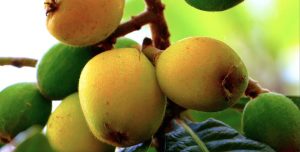 ecycling Worlds: A Collation of Works”
ecycling Worlds: A Collation of Works”
By Melanie Ferguson
Author’s note: “This piece deliberately enacts a recycling, by reusing and repurposing fragments of older works, that are fully referenced in footnotes. The words used are from four countries and three centuries, connecting ideas across time and space. All borrowings of material in this essay are limited to brief passages used for critical purposes, and are fully acknowledged in the references. I apologise in advance for any inadvertent infringements of copyright, which I will be happy to rectify as soon as they are brought to my attention.”
I stood in my garden pulling loquats off the tree and eating them to be full of spring[1]; a tree that may have spent further time as a house or classroom, or a bridge or pier. Or further time could be spent floating on the sea or river, or sucked into a swamp, or stopping a bank, or sprawled on a beach bleaching among the sand, stones and sun[2].
The train went on up the track out of sight, around one of the hills of burnt timber[3]. And further west on the upper reaches the place of the monstrous town was still marked ominously on the sky, a brooding gloom in sunshine, a lurid glare under the stars[4]. I said his heaven would be only half alive; and he said mine would be drunk; I said I should fall asleep in his; and he said he could not breathe in mine[5]. A ray peers into the room of your eye . . . . Why is our art so introverted? It doesn’t mean a thing – to the seagull or sun – the clouds don’t understand – a word – their language is silence[6]. His mouth opens. From inside him comes a slow stream, without breath, without interruption. It flows up through his body and out upon me… washing the cliffs and shores of the island, it runs northward and southward to the ends of the earth. Soft and cold, dark and unending, it beats against my eyelids, against the skin on my face[7]. And if several people talk at once an overlapping howling noise begins, echoes generate echoes[8]; our apparitions, the part of us which appears, are so momentary compared with the other, the unseen part of us, which spreads wide, the unseen might survive, be recovered somehow attached to this person or that, or even haunting certain places, after death. Perhaps – perhaps[9]; the tree, after a lifetime of fruiting, has, after its first death, a further fruiting at the hands of a master. This does not mean that the man is the master of the tree… He is master only of the skills that bring forward what was already waiting in the womb of the tree[10].The new things born there console or constellate they measure space they keep time. But who wrote this story? And before writing who told it to us that we tell it over and over? [11] With what ineffable pleasure have I not gazed – and gazed again, losing my breath through my eyes – my very soul diffused itself in the scene[12]; You are of me and I of you, I cannot tell – Where you leave off and I begin[13].
[1] Michele Leggott, “a woman, a rose, and what has it to do with her and they with one another?”, as far as I can see. Auckland: Auckland University Press, 1999.
[2] Patricia Grace, p. 7, Potiki. 1986. Auckland: Penguin, 2010.
[3] Ernest Hemingway, p. 133, “Big Two Hearted River: Part I.” In Out Time. 1925. New York: Macmillan, 2003.
[4] Joseph Conrad, p.5, Heart of Darkness. 1899. London: Penguin, 2007.
[5] Emily Bronte, p. 180, Wuthering Heights. 1847. Great Britain: Wordsworth Editions, 2000,
[6] Graham Lindsay, from “Cloud Silence” The Subject. 1994. Retrieved from NZEPC Oct. 5th, 2017.
[7] J.M. Coetzee, p. 157, Foe. 1986. London: Penguin, 2010.
[8] E.M. Forster, p. 137, A Passage to India. 1924. London: Penguin, 2010.
[9] Virginia Woolf, p. 129-30, Mrs Dalloway. 1925. Oxford: Oxford University Press, 2009.
[10] Patricia Grace, p. 7, Potiki. 1986. Auckland: Penguin, 2010.
[11] Michele Leggott, from the back cover of DIA. Auckland: Auckland University Press, 1994.
[12] Mary Wollstonecraft, p.72, Letters Written during a Short Residence in Sweden, Norway, and Denmark. 1796. Canada: Broadview Press, 2013.
[13] Susan Howe, Articulation of Sound Forms in Time. Windsor, VT: Awede, 1987.
Climate Change Creative Writing – Shortlisted
By Eden Shearer
Mother will not stop yelling
She is casting cyclones
That are destroying precious lives
She has become a home-wrecker
Sowing the seeds
Of volcanic eruptions
She is angry
Causing innocent feet
To flee from their homes
To run far away
We are too scared to look her in the eye
So we keep running
Hoping for grass that is greener on the other side
Only to find that there is nothing left
When will we learn
To stop arguing with our Mother
And to start implementing change?
It is about time we cleaned up our mess
And as they always say, Mother knows best
It is too late to diffuse her temper completely
But we can still use our actions
To decelerate her intensity
Let’s turn mindlessness
Into mindfulness
Oh Mother Earth, we can hear you.
Climate Change Creative Writing – Shortlisted
By Janet Newman
The river always
finds a way
down from the ranges
through the plain
to the sea
although sometimes it takes
a circuitous route
around corrals of cliffs,
sometimes cross country,
clear across old stones
because the river has a way
of folding back
on its way forward,
lengthening and stretching out long and wide
as it takes its time
as it longs to find its way
by longing for the sea
and in longing reveals
the length of its persistence
which is something to long for
however slow
the way any life
sometimes doubles back,
folding and looping
because the river
always finds the sea
by following
a doubtless course
sometimes doubling back
but always moving
eventually
forward.
Climate Change Creative Writing – Second Place Winner
By Janet Newman*
When the floodwaters rose up
covering the plain with mirrors and veils
our backyards looked like other people’s
and the roads we drove failed under rivers
that seemed to have been there longer than we had.
Belongings stacked on pool tables sagged.
Sixteen sand bags might as well have been a cache of illegal toheroas
for all the good they could muster
against the weight of water
spilling over the stopbanks.
When the floodwaters rose up
we sank down
into our steamed-up cars if we could find them,
our fire-warmed lounges if we could reach them,
watching the rain gauge, the tide times,
the insurance claim, the surge line.
We wrote everything down in the record books
but the numbers didn’t look like much
because we’d stopped feeling
like we were the ones who counted.
When the floodwaters rose up
we sank back down to the bush
and the powelliphanta snails
and the katipo
clinging to waterlogged webs
and peketua, paddling,
holding up their heads.
*Flood was first published in Atlanta Review (New Zealand) Spring/Summer 2017 and is republished here with kind permission of the editor.
Still Waving: Climate Change Theatre Action
With only a few days to go until Still Waving: Climate Change Theatre Action Aotearoa 2017, we are excited to bring you the full programme.
On October 23, we will be staging nine short plays at 2pm in the Massey University Wellington Theatre Laboratory:
- Start Where You Are, by E. M. Lewis – a poignant look at how to remain hopeful in the face of calamity, by an award-winning Oregon-based playwright
- The Penguins, by Elspeth Tilley – lifting our spirits through comedy as we find out what penguins think of humanity
- Truth Like Water, by Kat Laveaux – premiering a compassionate view of the world from an emerging Native American playwright whose tribe stands in defiance at the Dakota Access Pipeline protests
- A Girl’s Dance, by Ian Lesā – also a world premiere: a powerfully spiritual work from a new voice, Samoan New Zealand playwright and director Ian Lesā
- Brackendale, by Elaine Ávila – a wry comedy about Bald Eagles and rubbish dumps, from a Canadian/US writer of Azorean Portuguese descent
- Single Use, by Marcia Johnson – a Jamaican playwright’s very modern sketch of online dating in the 21st century and how we decide what’s important in a partner
- Swing Among the Stars, by Philip Braithwaite – an interstellar future, from the imagination of a multi-award-winning New Zealand playwright
- Homo Sapiens, by Chantal Bilodeau – a trip to the zoo, a century from now. What will be on exhibit? A provocative comedy from the co-founder of Climate Change Theatre Action, and;
- Rube Goldberg Device for The Generation of Hope, by Jordan Hall – an interactive experience that will get you off your feet, from a fresh and inspirational Canadian playwright.
There will also be readings of the three winning pieces in our Climate Change Theatre Action Creative Writing Competition, and a short talk from Generation Zero about what you can do to pitch in in the fight against climate change.
Still Waving is a paperless event, so please download our full programme in a PDF file, here for more detail of cast and crew: Still Waving Final Programme PDF 3
If you haven’t got your ticket yet, get one now from EventFinda: https://www.eventfinda.co.nz/2017/still-waving-climate-change-theatre-action-aotearoa-2017/wellington
And don’t forget, you can also join the ‘Becoming Penguin’ Performance Walk just prior to Still Waving if you’re keen – details at http://sites.massey.ac.nz/expressivearts/2017/08/30/becoming-penguin-a-performance-walk/
Massey grad takes flight with first novel – Massey University
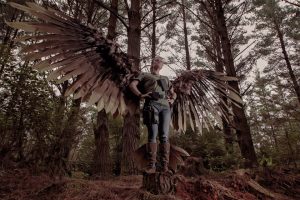 Her e-books for teens have already attracted over one million readers. She has huge international and local fan-bases. Now Massey University graduate Jessica Pawley has just signed off international screen adaptation rights for her just-published science fiction novel Air Born.
Her e-books for teens have already attracted over one million readers. She has huge international and local fan-bases. Now Massey University graduate Jessica Pawley has just signed off international screen adaptation rights for her just-published science fiction novel Air Born.Pawley (published as J L Pawley) recently launched her first book – about teens who suddenly grow wings and learn to fly – in Auckland after it was picked up by respected and award-winning New Zealand publisher Steam Press (an imprint of the Eunoia Publishing Group). The Russian and Chinese translation rights have already also been sold – huge markets for the young writer who graduated with a Bachelor of Arts majoring in English and Media Studies in 2010, and a Master of Arts in 2017.
Air Born is the first novel of her young adult sci-fi series Generation Icarus, an earlier version of which was self-published through the e-book streaming app Wattpad. Through this site, she cultivated a strong relationship with her fan base – including input and feedback from readers that contributed to the evolution of the series – which saw the creation of fan art, fan fiction, and social media accounts.
The story centres on 17-year-old Tyler Owen, who starts having back pain but doesn’t think it’s a big deal. Then, on his first solo skydive, his wings emerge. Wings that will simultaneously save and destroy his life. Caught on camera, Tyler is an instant viral hit, attracting unwanted attention of the worst kind.
Forced to go on the run, he’s pursued by the sinister Evolutionary Corporation and a dubious religious cult known as the Angelists. But the widespread media coverage also brings forward others like him from around the world. Together they form the Flight – finding out the hard way what it means to be the first of a new species.
An avid reader since childhood – soaking up everything from JK Rowling’s Harry Potter series to Terry Pratchett’s bestselling fantasy novels – Pawley’s long-held dream has been to write full-time.
Crediting her first taste of success with being driven, determined, disciplined, and loving what she does, Pawley first completed a Diploma of Creative Writing by distance while still a Year 13 student at Westlake Girls’ High School, and proceeded to a BA at Massey, enrolling in every creative writing paper available.
Her motivation to study literature whilst working on her own writing stemmed from her knowledge and awareness of how competitive the publishing industry is, especially a few years ago when many bookstores and publishers were closing as the popularity of e-books, e-readers and online sales soared.
“I was aware of how difficult it is to get published, and I knew I had to work hard to improve my craft and therefore my chances,” she says.
Tuning in to teens’ reading t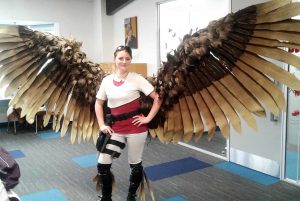 astes
astes
In 2016, she added to her industry knowledge by researching online interactive e-book platforms (how these online social reading communities are evolving new processes of fiction production and consumption) for her master’s (for which she achieved First Class Honours).
Engaging with teen readers – face-to-face through teaching as well as online – has given her precious insights and guidance in her writing. During a year of teacher aiding at a Hibiscus Coast high school with a class of reluctant readers, she developed a good rapport by finding stories they liked (Harry Potter, the Twilight series), and discussing themes that most appeal to them. Paranormal abilities intertwined with still-relatable stories came out tops, and she proceeded to write the first draft of First Flight (now fully redeveloped and published as Air Born), which went on to be chosen as a featured book on Wattpad in 2014, and won a Bronze Award from Readers Favorite [sic] in 2015.
She even researched the physics and biology of animal flight to create a believable sense of being a winged creature. There is gore and gristle in the sprouting of wings, as well as the thrill of flight. “It’s gritty, painful, and bloody – there’s no magic,” she warns.
And while the plot, setting and characters are deliberately international, she’s woven in New Zealand elements, including a Māori main character, Tui.
Currently immersed in meetings with film producers and busy working to tight deadlines on the television project development as well as honing her next book in the series, she says; “It’s still very surreal.” And real: “I’ve got so much work to do!”
There are book fairs and author interviews in Taiwan and Russia looming. All up, this new writer is flying.
Read more on: https://www.generationicarus.com/
Source: Massey grad takes flight with first novel – Massey University

Still Waving: New Voices Climate Action Creative Writing Competition
Write, inspire and win! As part of our Climate Change Theatre Action 2017 event, ‘Still Waving,’ the Massey University School of English & Media Studies and Pukeahu ki Tua: Think Differently Wellington are proud to announce a climate action creative writing competition for new and emerging writers.
Prizes:
1st place – $300
2nd place – $200
3rd place – $100
Thematic guidelines
The creative writing competition aligns with Climate Change Theatre Action’s global theme, which is that “climate action requires a hopeful vision of the future”.
CCTA 2017 asks the question: “How can we turn the challenges of climate change into opportunities?”
We are looking for creative writing that provides hope, inspires positive action, and illuminates individual and collective solutions. There is still time to change the course of climate change: it is not too late, but it will require a collective will the likes of which planet earth has seldom seen. How can you use your writing, your particular voice, to help people visualise, embrace and achieve that change? What specific images can we find to illuminate why people should care about the environment? How can we move people without preaching to them or becoming didactic?
Politics is a surface in which transformation comes about as much because of pervasive changes in the depths of the collective imagination as because of visible acts, though both are necessary. And though huge causes sometimes have little effect, tiny ones occasionally have huge consequences. . . (Rebecca Solnit)
Genre:
We are accepting five types of entry:
- Twitterature (tell a story in no more than 140 characters)
- Flash Fiction 100 Words (tell a story in exactly 100 words – no more and no less)
- Poetry (any length up to 200 words)
- Short stories of up to 1200 words.
- Personal essays of up to 1200 words.
To enter:
Please email your entry in the body of an email to climateactionwriting@gmail.com by 5pm (NZ time) on Friday October 6, 2017.
Entry is open to all new and emerging writers. We take this to mean anyone who has not published a book. By entering you agree to publication of your entry and your name in social media. You may enter as many different items as you like. Please include your full name and the city or town you live in, with your entry.
The judge:
We are grateful to Dr Ingrid Horrocks from the School of English & Media Studies for agreeing to judge the Still Waving Climate Writing competition. Ingrid’s creative publications include two collections of poetry, a number of personal essays, and a genre-bending travel book.
More about Still Waving:
Still Waving, our 2017 Climate Change Theatre Action Aotearoa event, will take place on October 23 at Massey Wellington campus. There will be plays, readings, a performance art installation, and of course the prize-giving announcement of the fabulous winners of this competition! Still Waving is part of the global Climate Change Theatre Action 2017, which involves 50 selected plays (including two from our school) and more than 180 events in 41 countries. This is the second time we have participated in CCTA and we are delighted to be back! Check it all out at: https://www.facebook.com/events/163701054197372/
Creative Writing students published in Swamp
Well done to our creative writing postgraduate students Nataliya Oryshchuk and Janet Newman – both have exquisite pieces of work published in the latest issue of Swamp (and Janet has three!).
